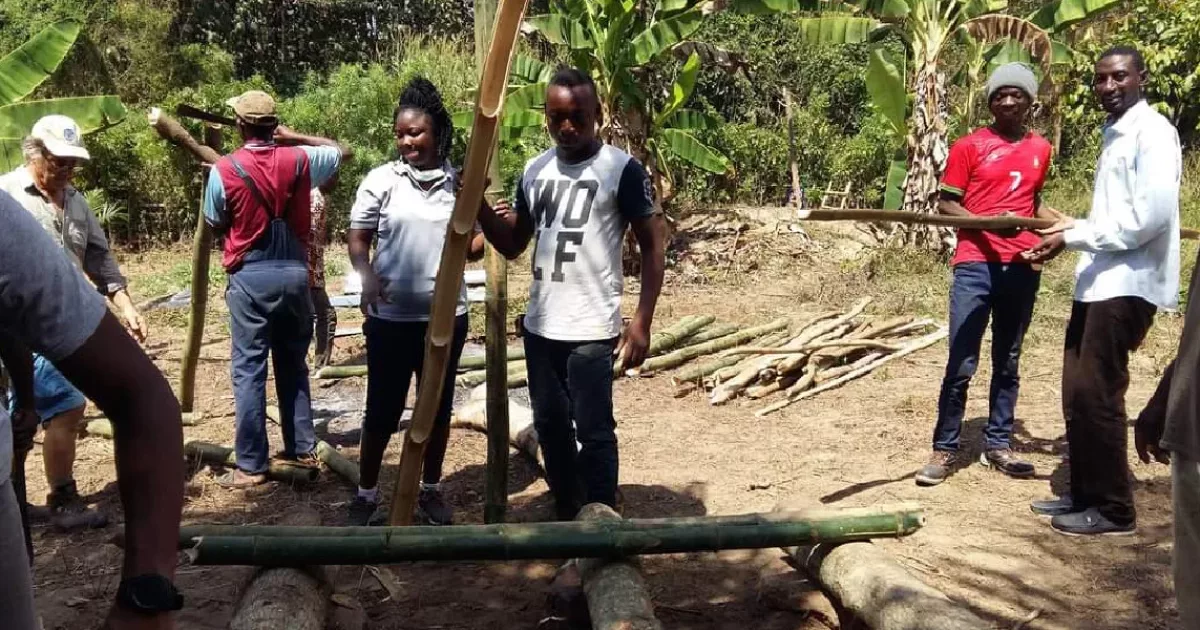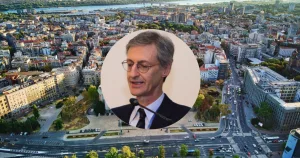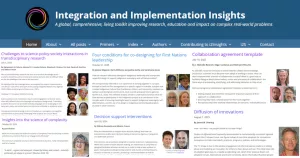Koku Selom Agbavito: “For harmonious developpement, expertise of local communities must be considered”
In Togo, the Association des Volontaires pour l'Environnement Sain supports local communities to solve environmental problems and develop sustainable economic activities

What are the goals of the Association des Volontaires pour l’Environnement Sain (AVES, Association of Volunteers for a Healthy Environment)?
Koku Selom Agbavito: Although our name insists on environment, we are concerned with all aspects of sustainable development. In our activities, particularly our research and assessments for setting up projects, we find that, on the one hand, environmental issues are linked to economic and social problems and, on the other hand, when the natural environment is improved, this also has an impact on the economy and society. Furthermore, in order to find lasting solutions to environmental problems, we believe it is essential to understand the expertise of local communities and what they have to offer. Our work therefore focuses particularly on local skills and co-construction.
Who are the members of the association and how has it evolved?
K.S.A.: AVES was founded in 2005 by four young university students, including myself, who wanted to experiment and apply what we had learned at university to solve certain problems within our communities. Initially an association, we became a non-governmental organization because we provide services. We are based in the municipality of Kpalimé, in the south-west of Togo, near the border with Ghana, but we operate throughout the country.
What does it involve?
K.S.A.: We are active in territorial planning. For example, we help communities or villages to draw up their own development plans, which begins with an assessment to analyze the problems before identifying their potential. Based on this potential, we identify the strategic paths they can take.
So, you are carrying out missions of general interest on behalf of the government or external agencies?
K.S.A.: Yes, we apply to calls for expressions of interest for studies or services. We are also approached directly by villages, particularly for projects to restore degraded land, for which we put together the project, including seeking funding from donors, supporting policy decisions, and providing technical training.
When you talk about , what exactly is “degraded land”, and what are the benefits of restoration?
K.S.A.: Land can be degraded by various causes, such as overgrazing, excessive tree cutting or monoculture. Restoring this degraded land not only allows it to be brought back into cultivation, but also promotes biodiversity. This leads to significant economic and social development. For example, the return of biodiversity provides access to medicinal plants that had become rare or disappeared from the area, which is of particular interest to traditional practitioners.
Could you give us a concrete example of a land restoration project and its economic benefits?
K.S.A.: We carried out a restoration project where we reforested more than 82 hectares. Thanks to collaboration with a German university, we were able to use techniques to assess biodiversity growth via a geographic information system. Being able to accurately measure the size of plants, their growth rate, accumulated biomass, and carbon capture or emissions can open up access to the carbon credit market. The financial resources generated can then be reinvested to improve social conditions, for example by renovating or building schools.
Who are your partners in Togo?
K.S.A.: We support municipalities in implementing their municipal plans. We also work with volunteer-based networks to get students to participate in our programs on a voluntary basis, because selfless mutual aid is an important value in our country, and we strive to preserve it, even though the concept of volunteering without any ulterior motive of monetization is tending to disappear. We are also part of local consortia within thematic networks, which promotes exchanges between actors in the same area.
You mentioned the importance of local skills and know-how. Do you have any examples where local practices are more effective than “modern” solutions brought in from outside?
K.S.A.: Many projects funded by international aid have little or no impact because they are not adapted to local realities. For example, regarding seed conservation, United Nations programs have set up modern stores, but we have observed that seeds preservation rates are higher in traditional granaries, possibly with some improvements. This is a striking example of how communities have their own ways of doing things, and it is essential for harmonious development to value these before introducing new solutions. Furthermore, traditional granaries can vary from one community to another.
Do you mean that practices differ from one region of Togo to another?
K.S.A.: Yes, absolutely. Even among the Ewe people in southern Togo, there are smaller communities with slightly different practices in granaries building. In the mountainous region of Danyi, their technique is a little different from that in regions such as Atchavé or Tové, due to differences in humidity, for example, which require specific adaptations.
What interest do you see in joining The Earth-Humanity Coalition?
K.S.A.: My motivation is to share experiences and expertise. Exchange, case studies, and sharing experiences are essential to support our actions in the field: exchanging with actors from other regions on a topic where they may be more advanced is very enriching. I saw on The Earth-Humanity Coalition website that it already brings together a lot of expertise.
Are you already part of any national or international networks?
K.S.A.: Yes, at the international level, our NGO is accredited to the Climate Conference of the Parties (COP), where we participate when we can. We are also part of the Global Network of Civil Society Organisations for Disaster Reduction (GNDR), where we are the national focal point in Togo. We are also members of the Initiatives Climat (Climate Inititatives) network, based in Morocco.
What needs are not covered by these networks that could be covered by EHC?
K.S.A.: These networks are thematic. We want to remain open to all issues related to sustainable development, and EHC could offer us this diversity and broader exchanges.
What would be your proposal for action to other EHC members?
K.S.A.: To promote and showcase all traditional research and traditional know-how. This local and community knowledge, although it contributes greatly to development, is often undervalued. We believe it is important that we document these techniques, which are so fundamental.
Have you already started to do so?
K.S.A.: Yes, for example with traditional granaries. We organized an exchange here in Togo where participants from Senegal, Burkina Faso, and other countries were able to experiment with building these granaries with the local population, and this practice has since traveled, being replicated in Benin and even Morocco with adapted local materials. It is interesting to note that the technique adapts to the materials available, such as forest wood in Togo or straw in Burkina Faso. In fact, the Initiatives Climat network, which helped us organize this exchange, has scientifically documented the design and construction of these granaries, and they produced a tutorial that is now available online.
Interview by Luc Allemand
SUBSCRIBE TO OUR NEWSLETTER
To stay up to date with our projects and the development of the EHC
Read more articles

WAAS Talks on Science for Human Security: Renewable Energy
On 23rd February 2026, an expert panel will discuss renewable energy as part of the EHC-WAAS program of sciences for

Gian Francesco Giudice: “Ethical responsibility is essential in fundamental research”
From hypothetical black holes to environmental impact studies, CERN navigates risk, transparency, and moral responsibility at the frontiers of human

Dealing with the complexity of society and environment
A global toolkit for tackling complex problems with more than 600 different methods Ever wish you had a free toolkit

The Moon & the Global South: Voices, Risks & Promise
Researchers warn that without inclusive governance, the Moon could become “a new arena for old patterns of exclusion” When rockets